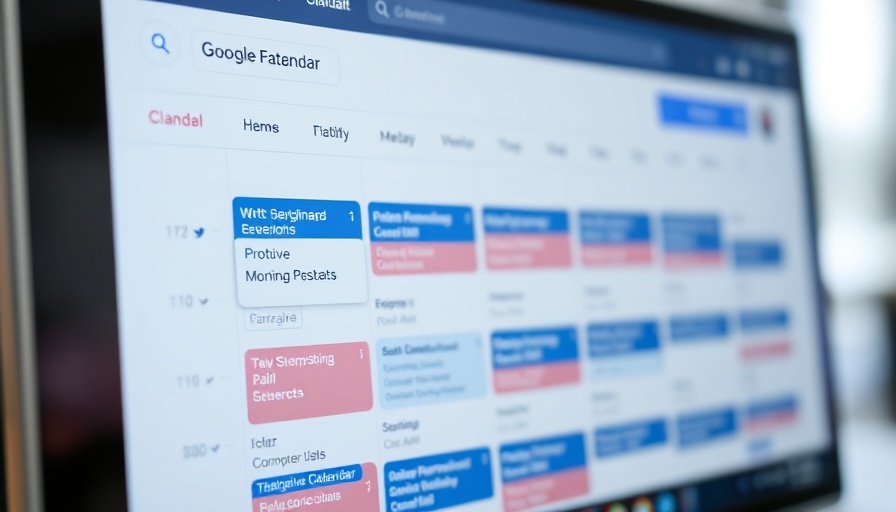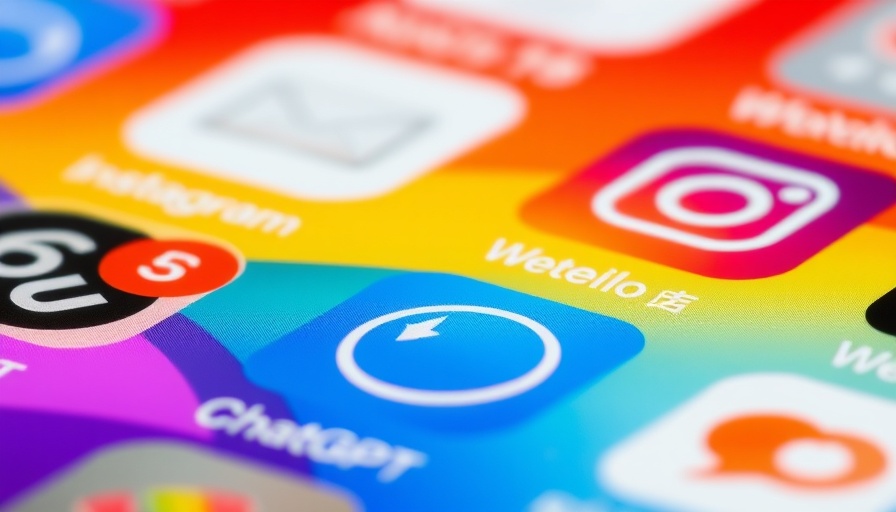
The Future of Scheduling with AI: Gemini's Arrival
As productivity demands soar in our fast-paced world, Google’s Gemini AI integration into Google Calendar offers a glimpse into how technology can alleviate our scheduling burdens. The promise is simple yet powerful: quickly access event information, create events on the fly, and manage your calendar with a few spoken words. This development is particularly appealing to tech enthusiasts and AI lovers keen to leverage artificial intelligence to enhance their daily lives.
Gemini AI: Your New Assistant
The Gemini AI feature is designed to simplify how you interact with Google Calendar. By using natural language prompts, you can say, “What’s on my schedule for tomorrow?” or “Add my dentist appointment at 2 p.m. on Friday,” making it feel like you’re conversing rather than typing endlessly. Not only does this streamline the scheduling process, but it may also make managing complex calendars more intuitive for everyone from busy professionals to students juggling classes and extracurriculars.
How to Get Started with Gemini
Currently, this new functionality is available through Google Workspace Labs, meaning it’s still in a testing phase. Users interested in utilizing Gemini in their Calendar must first enroll in Google Workspace Labs. Once set up, the 'Ask Gemini' button provides direct access to AI-assisted scheduling, creating a user-friendly experience that invites experimentation.
Caveats: What to Keep in Mind
While Gemini is adept at adding events based on your commands, it comes with limitations. For instance, users must still send invitations manually, and the AI is presently only supported in the web version of Calendar. It does not extend to mobile apps yet, which may disappoint those accustomed to managing their calendars on the go. Furthermore, an ongoing concern with AI is the reliability of its output; the possibility of miscommunication exists if the AI misinterprets your requests.
A User Experience: Testing Gemini
Testers have reported mixed results. While many praise Gemini's ability to quickly locate and manage appointments, some users have encountered hiccups, such as missing details or errors in recognized events. The AI can perform simple tasks efficiently, but complexities in scheduling may still require human oversight. As a result, it’s crucial for users to remain involved rather than completely relying on automated services.
The Broader Implications of AI in Daily Life
This integration of Gemini into Google Calendar marks a significant milestone in the ongoing dialogue about the role of AI in our daily routines. As automation becomes increasingly popular, it opens up discussions about efficiency versus accuracy. How much trust should we place in AI to manage aspects of our lives? These questions are essential as we navigate the expanding capabilities of AI technology.
Looking Ahead: The Future of AI in Calendar Applications
With the launch of features like Gemini, the future of scheduling may see deeper AI integration. We may soon witness refined automated invitations based on mutual availability, cutting down the back-and-forth typically involved in planning. This shift could redefine how we approach event planning, making it an even more seamless experience.
Final Thoughts: Embracing AI Innovations
Gemini is just the tip of the iceberg in how AI can potentially revolutionize daily tasks. For AI enthusiasts, actively participating in early access programs like Google Workspace Labs offers a front-row seat to technological evolution. As these features roll out and improve, they will offer insights into how we can adapt and make the most out of AI-driven tools.
Stay informed about the latest advancements in the AI realm by subscribing to relevant newsletters and tech bulletins. Engaging with these tools can open new opportunities to enhance productivity and learning in our day-to-day lives.
 Add Row
Add Row  Add
Add 




 Add Row
Add Row  Add
Add 

Write A Comment